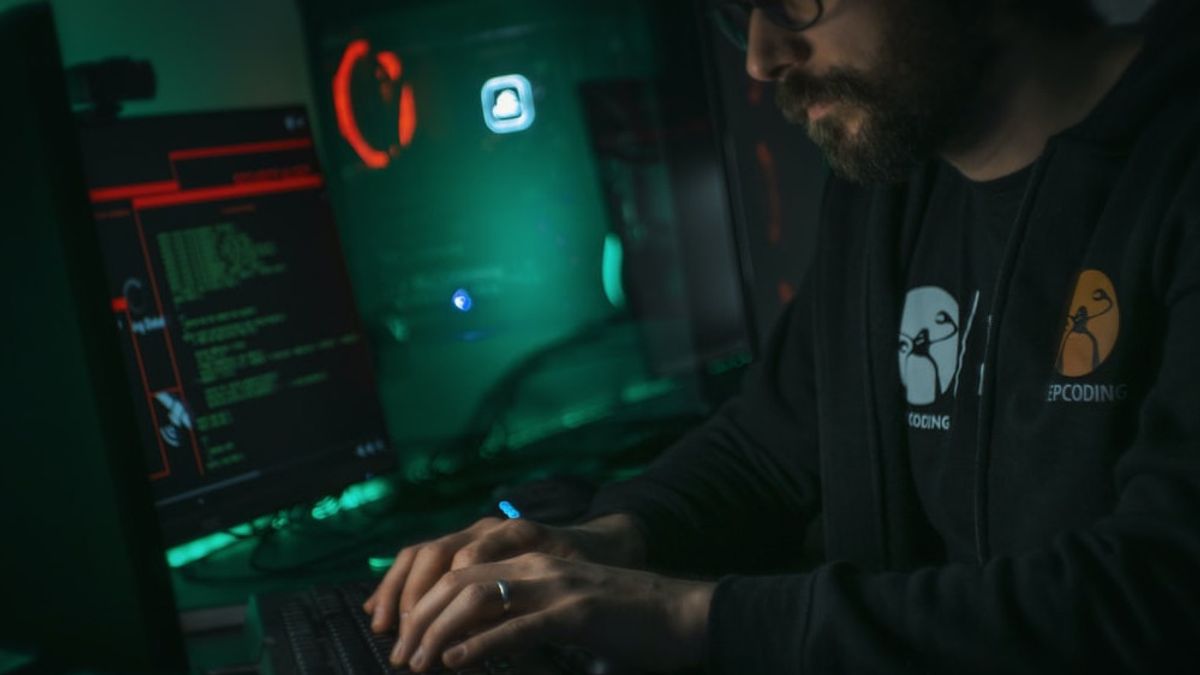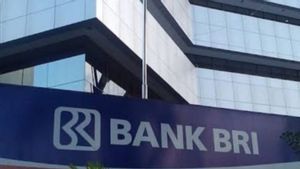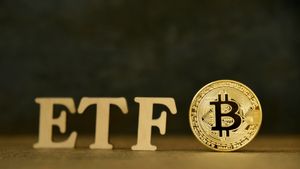JAKARTA - The European Central Bank is preparing banks for a possible Russian-sponsored cyberattack. This comes as tensions between Russia and Ukraine escalate. The region is currently preparing to face the financial repercussions of any conflict.
The standoff between Russia and Ukraine has rattled European political and business leaders, who fear an invasion that would wreak havoc across the region.
Earlier this week, French President Emmanuel Macron departed from Moscow for Kyiv in a bid to act as a mediator after Russia massed troops near Ukraine.
Now the European Central Bank (ECB), led by former French minister, Christine Lagarde, is on alert for the threat of cyber attacks on banks launched by Russian agents.
While regulators have focused on the usual scams that thrived during the pandemic, the Ukraine crisis has turned its attention to cyberattacks launched by Russia. The ECB has even warned some banks about their defenses.
Banks are also currently conducting cyber warfare games to test their ability to fend off attacks, the person said.
The ECB, which has chosen to address cybersecurity vulnerabilities as one of its priorities, declined to comment.
The New York Department of Financial Services also issued a warning to financial institutions in late January, warning of a retaliatory cyber attack if Russia attacks Ukraine and triggers US sanctions.
Reuters reports that the United States, European Union, and Britain have repeatedly warned Russian President Vladimir Putin against attacking Ukraine after Russia deployed around 100,000 troops near the border with its former Soviet neighbor.
Earlier this year, several Ukrainian websites were hit by cyberattacks that left warnings to "fear and hope for the worst", as Russia had amassed troops near the Ukrainian border.
Ukraine's state security service, the SBU, said it had seen signs the attack was linked to a hacker group linked to Russia's intelligence services.
Meanwhile, Russian officials say the West has been gripped by Russophobia and has no right to lecture Moscow on how to act after it expanded its NATO military alliance eastward since the fall of the Soviet Union in 1991.
The Kremlin has also repeatedly denied that the Russian state had anything to do with the worldwide hacking and said it was ready to cooperate with the United States and other countries to crack down on cybercrimes. Nonetheless, regulators in Europe continue to increase their vigilance.
The UK's National Cybersecurity Center has also warned its country's major organizations to increase their cybersecurity resilience amid deepening tensions in Ukraine.
On Tuesday, February 8, Mark Branson, head of German watchdog BaFin, told an online conference that cyberwarfare is intertwined with geopolitics and security.
SEE ALSO:
The White House also blamed Russia for the devastating 'NotPetya' cyberattack in 2017, when a virus paralyzed parts of Ukraine's infrastructure, as well as crippling thousands of computers in dozens of countries.
The vulnerability was underscored again last year, when one of the world's largest hacking campaigns used US technology companies as springboards to compromise US government agencies, and attack the White House said deservedly blamed foreign intelligence services such as Russia.
The attack breached software made by SolarWinds Corp, giving hackers access to thousands of companies using its products, spreading across Europe, where Denmark's central bank said the country's "financial infrastructure" had been hit.
Some, however, believe the Ukrainian crisis has exploded out of proportion. Ukrainian President Volodymyr Zelenskiy accused Washington and the media of stoking panic.
The English, Chinese, Japanese, Arabic, and French versions are automatically generated by the AI. So there may still be inaccuracies in translating, please always see Indonesian as our main language. (system supported by DigitalSiber.id)


















